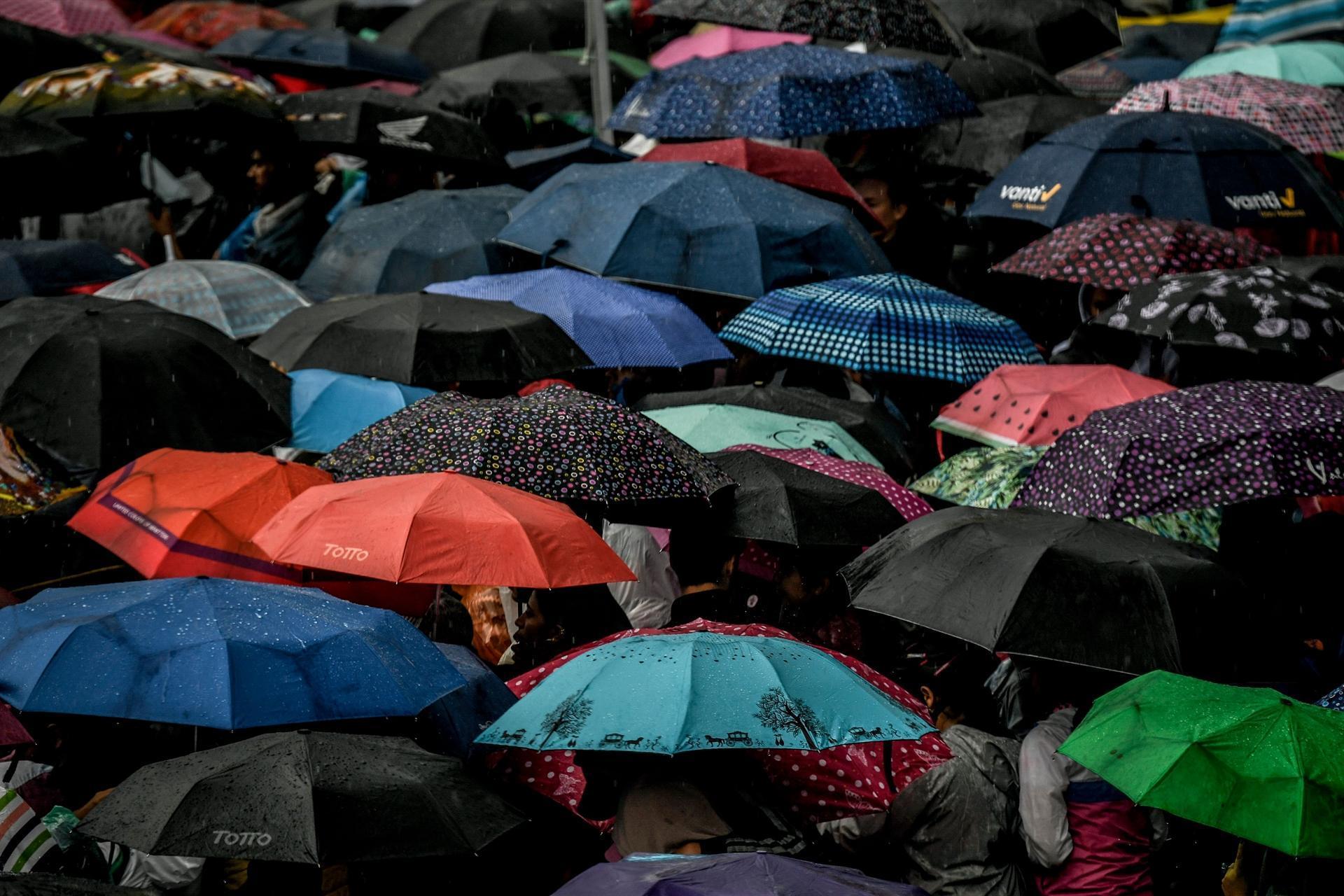
Rainfall in Colombia's capital during a recent concert in support of protesters evoked images of Hong Kong's umbrella revolution as a sea of umbrellas dotted the venue.
Like Hong Kongers, Colombians have been taking to the streets to protest government policies for some time.
Dozens of singers and music groups in Colombia have also organized concerts to support the protesters.
Five people have been killed and nearly a thousand have been injured in clashes between protesters and police in demonstrations that began Nov. 21.
Protestors are demanding the implementation of a peace agreement signed with the Revolutionary Armed Forces of Colombia rebel group and the fulfillment of promises made to students following the last massive mobilization against President Ivan Duque's policies.
The National Strike Committee also has a list containing 13 demands, including fighting corruption, improving the agricultural sector, protection of the environment and the rejection of privatization of state assets.
Students demand more funding for public universities, feminist movements request free and legal abortion and social leaders are calling for an end to violence in rural communities.
Protesters also disapprove of the Economic Growth Law, which is essentially tax reform. The reform is part of what demonstrators call "the Duque package," which has unleashed turmoil and remains central to public debate.
Duque, who has been in office for 15 months, is facing one of the most difficult tests of his presidency. His job is now to find a strategy that protesters will accept and one that can calm the turmoil in the streets, even though the demands seem to be far removed from his government's policies.
On Dec. 4, Colombian unions and student groups marked a third national strike with marches, chants and dancing, ahead of additional dialogue between protest leaders and the government over Duque's social and economic policies.
It was the latest demonstration in two weeks of protests, which have drawn hundreds of thousands of marchers and put pressure on Duque's proposed tax reform, which lowers duties on businesses.
Duque announced a "great national dialogue" on social issues, but government efforts to stop demonstrations have failed. The union-led National Strike Committee has stuck to demands for one-on-one talks and refused to call off protests.
The demonstrations, while largely peaceful, resulted in damage to dozens of public transport stations and curfews in the city of Cali and the capital Bogota.
Protesters have wide-ranging demands - including that the government do more to stop the murder of human rights activists; support former leftist rebels who demobilized under a peace deal; and dissolve the ESMAD riot police, accused by marchers of using excessive force.
About 40,000 people had joined the Dec. 4 protest, the interior minister said in a news conference. Some public transit stations were closed as marchers blocked roads.
Protesters in Bogota gathered in central Bolivar Plaza.
"It's a time for lots of sectors in our country to wake up. The poor are very poor and the rich have everything," said Silvia Torres, 38. Torres brought her one-year-old daughter Amelia for her first march. Amelia's uncle Nicolas Ruiz, a 25-year-old construction worker, said he hopes it is her last.
"I hope she doesn't have to protest."
Five have died in connection with the demonstrations, which started on Nov. 21 and have occurred in tandem with protests in other Latin American countries.
The president of the Central Union of Workers (CUT) called for peaceful marches in comments to Reuters early on Dec. 4.
The CUT, Colombia's largest union, and other committee members are expected to keep meeting with Duque's representatives on Thursday.
The committee's 13 demands include that the government reject a rise in the pension age and a cut in the minimum wage for young people, both policies Duque denies supporting.
The government has repeatedly said the demands for one-on-one dialogue exclude other sectors and that it cannot meet demands that it refrain from deploying the ESMAD.
ESMAD squads have been significantly less visible since an 18-year-old protester was fatally injured 10 days ago by a projectile launched by the force.